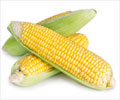high fructose corn syrup has no scientific support for the hypothesis that high fructose corn syrup is causally linked to obesity in the United States.
A supplement in the December 2008 edition of the American Journal of Clinical Nutrition that reviews the history and development of high fructose corn syrup finds no scientific support for the hypothesis that high fructose corn syrup is causally linked to obesity in the United States or globally any more or less than other caloric sweeteners.
Following a symposium that brought together scientific leaders on this topic from varying backgrounds, including former high fructose corn syrup critics who had earlier expressed concern that high fructose corn syrup might pose unique problems, a consensus is emerging that this sweetener is in fact indistinguishable from sucrose in its metabolic effects. According to Victor Fulgoni, Symposium Chair, in his summary of the presented papers, “Thus, we now have a clearer picture about HFCS; namely, metabolic responses are similar to sucrose as would be expected from the composition of these 2 sweeteners.”“This symposium exposes the crux of confusion about high fructose corn syrup: it is a case of mistaken identity between two sweeteners,” said Audrae Erickson, President of the Corn Refiners Association.
“Many confuse pure ‘fructose’ with ‘high fructose corn syrup,’ a sweetener that never contains fructose alone, but always in combination with a roughly equivalent amount of a second sugar (glucose). Recent studies that have examined pure fructose - often at abnormally high levels - have been inappropriately applied to high fructose corn syrup and have caused significant consumer confusion.”
Experts from academia and industry, including: James M. Rippe, M.D., a cardiologist and founder of the Rippe Lifestyle Institute; John S. White, Ph.D., founder of White Technical Research; as well as former high fructose corn syrup critics Peter J. Havel, D.V.M., Ph.D., a nutrition researcher at U.C. Davis; and Barry M. Popkin, Ph.D., professor of nutrition at the University of North Carolina Chapel Hill, convened to analyze detailed high fructose corn syrup data. They reviewed the following:
• Why high fructose corn syrup is used as a food ingredient
• The contribution high fructose corn syrup makes to consumers’ diets
• The latest research on the metabolic effects of high fructose corn syrup.
Highlights from the review of available data (authored by John S. White, Ph.D.) on all sweeteners from the 1970s to the present show:
Advertisement
• Fructose-glucose sweeteners are metabolized through the same pathways regardless of their dietary source.
• There are no known substantial metabolic or nutritional differences between high fructose corn syrup and sucrose. Both have a composition of approximately equal parts fructose and glucose.
• High fructose corn syrup and sucrose offer equivalent sweetness and both contain 4 calories per gram.
• From 1970-2005, caloric intake in the United States increased by 24%. This was not due to a disproportionate increase in added sugars (including high fructose corn syrup), but rather an overall increase in calories from all food sources including fats and all other nutrient groups.
• Per capita consumption of high fructose corn syrup has declined in the United States in recent years, but obesity rates continue to rise.
• High fructose corn syrup accounts for about one-half of sweetener use in the United States but only 8% worldwide, yet obesity rates are climbing in countries that use little or no high fructose corn syrup. Sugar remains the predominant global sweetener.
For years, widespread confusion about the sweetener has existed within the scientific community and general public, fueled by erroneous links to research utilizing pure fructose, as well as by misinformation about the differences between pure fructose and high fructose corn syrup. High fructose corn syrup never contains fructose alone. Like sucrose, high fructose corn syrup is always in combination with a roughly equivalent amount of a second sugar, glucose.
Advertisement
“The real takeaway here is that excess consumption of any type of calories will contribute to weight gain. Therefore, we can’t pin obesity in the United States or elsewhere to any particular type of sweetener use, including high fructose corn syrup,” said Dr. White.
High fructose corn syrup is made from the natural grain product of corn. It contains no synthetic ingredients or color additives and it meets the U.S. Food and Drug Administration’s definition of “natural”.
No Unique Effects On Metabolism
The true cause of the obesity crisis is more likely an increase in caloric intake overall. A second review in the December 2008 supplement of American Journal of Clinical Nutrition (James M. Rippe M.D., et. al) titled “High fructose corn syrup, energy intake, and appetite regulation1-4” examines the existing studies comparing high fructose corn syrup and sucrose consumption in men and women, and concludes there are no significant differences in outcome measures of metabolism.
“Rather than focusing on differences between one caloric sweetener and another, long-term studies comparing high fructose corn syrup-sweetened beverages with non-caloric beverages are more relevant to the issue of increased caloric intake of sweeteners overall. We definitely need more research in this area given the high consumption of sweeteners overall,” said Dr. Rippe.
“As researchers continue to examine the role of sweeteners in the diet, it’s important to understand the differences between the various sweeteners tested in scientific studies," Dr. Rippe added. “Testing fructose alone and then generalizing any findings to high fructose corn syrup misleads the consumer. It is important that sound science is communicated in meaningful ways to the public.”
While scientists agree excess intake of added sugars and other sources of extra calories is not beneficial to the American diet, the articles demonstrate why high fructose corn syrup should not be singled out as a root cause of obesity.
These American Journal of Clinical Nutrition papers provide further support for the American Medical Association’s June 2008 statement that “…high fructose syrup does not appear to contribute to obesity more than other caloric sweeteners.”
Source-Newswise
SRM













